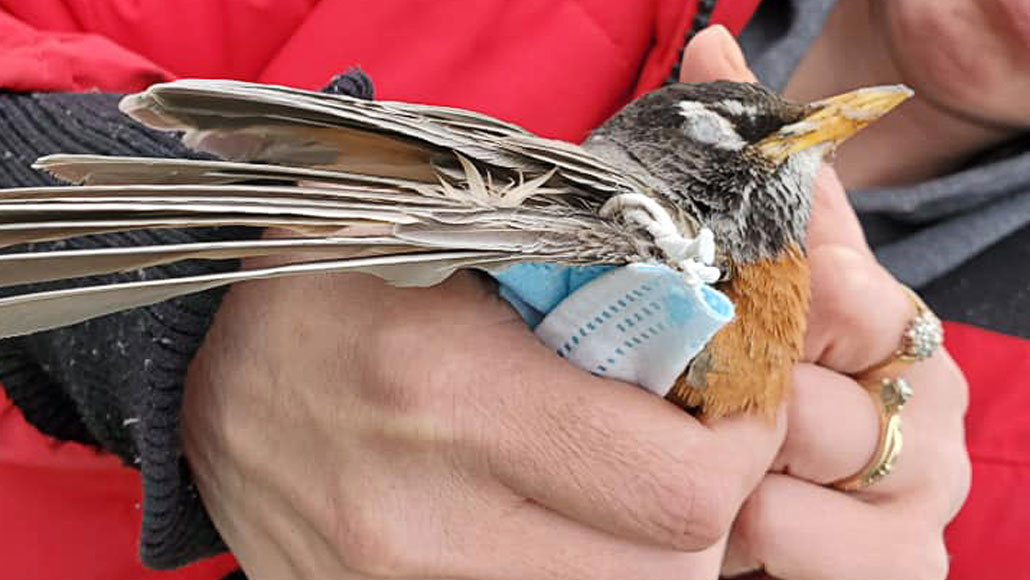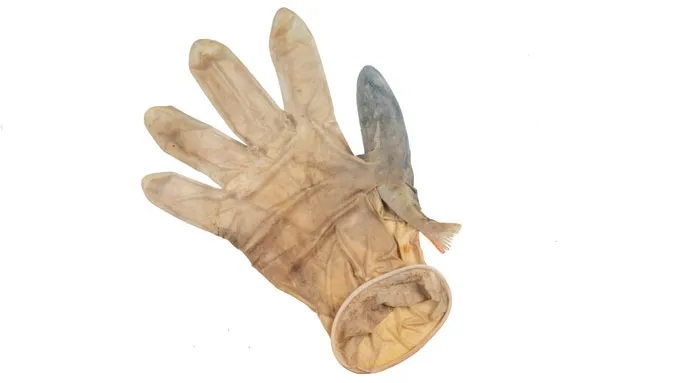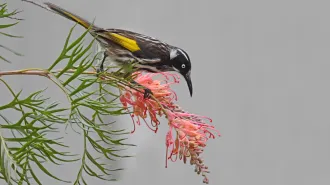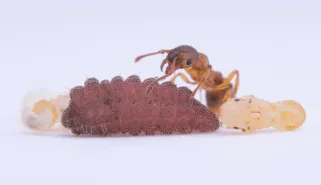
In perhaps the first documented impact of COVID-19 litter on wildlife, this robin was found entangled in a face mask in Chilliwack, Canada, in April 2020.
Sandra Denisuk, A.-F. Hiemstra et al/Animal Biology 2021
A Magellanic penguin in Brazil ingested a face mask. A hedgehog in England got itself entangled in a glove. An octopus off the coast of France was found seeking refuge under a mask.
Wildlife and ecosystems around the world are suffering from the impact of discarded single-use COVID-19 protective gear, researchers warn March 22 in Animal Biology. Latex gloves and polypropylene masks which protect people from the coronavirus are exacerbating the plastic pollution problem when not disposed of properly and are causing wildlife deaths (SN:11/20/20). The study is the first global documentation of the impacts of COVID-19 litter on wildlife via entanglement, entrapment and ingestion (SN:12/15/20).
In August 2020, volunteers cleaning canals in Leiden, Netherlands, chanced upon a perch — a type of freshwater fish — trapped inside a finger of a latex glove. The ensnared fish was the first recorded wildlife casualty caused by COVID-19 litter in the Netherlands. The find shocked two Leiden-based biologists — Auke-Florian Hiemstra and Liselotte Rambonnet — who wanted to know more about the extent of COVID-19 litter’s impact on wildlife. They embarked on an extensive search, online and in newspapers, to collate examples.

They found 28 such instances from all around the world, pointing to a larger, global problem. The earliest reported victim was from April 2020: an American robin in Canada, which appears to have died after getting entangled in a face mask. Pets are at risk, too: In Philadelphia, a domestic cat ingested a glove, and a pet dog in Boston that had consumed a face mask. “Animals with plastic in their stomach could starve to death,” says Rambonnet, of Leiden University.
“What this paper does is give us insight to the extent of the [COVID-19] litter’s impact on wildlife, so we can make efforts to minimize the consequences,” says Anna Schwarz, a sustainable plastics researcher at TNO, an independent organization for applied scientific research in Utrecht, Netherlands. That could be a tall order: A report published by Hong Kong–based marine conservation organization OceansAsia, for instance, estimates that 1.56 billion face masks would have entered the world’s ocean last year, part of the 8 million to 12 million metric tons of plastic that reaches the oceans annually.
As the far-reaching impacts of COVID-19 litter on wildlife become more apparent over time, Hiemstra, of the Naturalis Biodiversity Center, and Rambonnet are relying on citizen scientists to help them continue monitoring the situation: At www.covidlitter.com, people from around the world can submit their observations of affected wildlife. To curb the growing hazards, the study authors recommend switching to reusables wherever possible, as well as cutting up disposal gloves and snipping the straps off of single-use masks to prevent animals from getting entangled or trapped in them.
Sign up for our newsletter
We summarize the week's scientific breakthroughs every Thursday.
“The paper highlights the importance of proper waste management, especially the recycling or disposal of single-use materials,” says Schwarz.
But the situation isn’t always so dire. Some animals have commandeered discarded PPE for their own uses. COVID-19 litter has become so pervasive that birds have been observed using face masks and gloves as building materials for their nests. “Bird nests from 2020 are so easy to recognize,” says Hiemstra.






